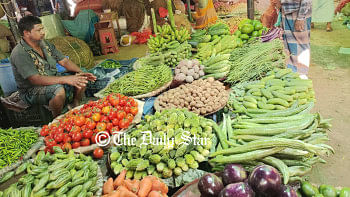Reduce bad loans to boost economy

The uptrend of non-performing loans (NPLs) is creating challenges for Bangladesh's banking sector and overall economy, that too at a time when ongoing trade disputes are severely disrupting the global economy, according to various experts.
Speaking on the concluding day of the 10th Annual Banking Conference 2025, they recommended reducing bad loans and ensuring good governance at banks to boost the country's economic vibrancy.
The two-day event, organised by the Bangladesh Institute of Bank Management (BIBM), came to a close at the BIBM auditorium in Dhaka yesterday.
Defaulted loans, or bad loans, in the country's banking sector reached a record Tk 345,765 crore at the end of last year as toxic loans increased sharply following the political changeover in August last year.
Defaulted loans in the country's banking sector reached a record Tk 345,765 crore at the end of last year as toxic loans increased sharply following the political changeover in August last year
However, distressed assets -- which include written-off loans, rescheduled loans and loans tied up in the Money Loan Court -- stood at Tk 668,598 crore.
Professor Barkat A Khoda delivered the keynote of the inaugural session on the second day. He said that bad loans have reached their highest level till date, which is alarming for the country's economy.
Several sessions, including ones dedicated to fintech, the financial sector, Islamic banking, governance, risk management and bank performance issues were held on the second day.
The conference sessions covered contemporary issues and sustainability concerns in banking, finance, and the economy, both in national and international contexts.
Speaking at the event, Shah Ahsan Habib, senior professor of BIBM, said the global economic and financial landscape is undergoing unprecedented transformation.
"We are witnessing a paradigm shift -- a new wave of economic nationalism, protectionism, and currency uncertainty -- that is challenging the foundation of the international monetary order," he added.
Habib further said that the economy in today's context reminds of a long-gone, yet defining period in economic history: the "Interwar Period" between the first and second world wars.
He pointed out that those years were marked by suspended gold convertibility, monetary fragmentation, and the notorious "beggar-thy-neighbour" policies.
"We know that beggar-thy-neighbour policies were economic strategies where a country tried to improve its own economy at the expense of others, often through tariffs or currency devaluation, so we have to prepare for any such situation," he added.
He also said that leading economies are currently engaged not in cooperation, but in tariffs, trade barriers, and exchange controls.
As a result, a great economic depression like that in the 1930s could be repeated.
"So, we need to prepare for a difficult situation," Habib added.
Mohammad Abdul Mannan, chairman of First Security Islami Bank, in a session titled 'Islamic Banking and Governance,' said that Islamic banking in Bangladesh is growing very fast and good days are ahead for Islamic banking.
Around 1,000 officials of different banks, economists, academicians, and panellists participated in the two-day session of the Annual Banking Conference.

 For all latest news, follow The Daily Star's Google News channel.
For all latest news, follow The Daily Star's Google News channel. 



Comments